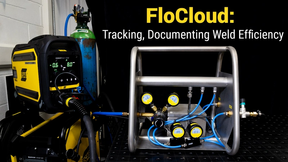KAUST Research Vessel Keel Laid at Freire Shipyard
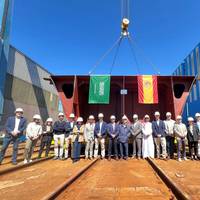
The keel laying of the new research vessel, Thuwal II, for the King Abdullah University of Science and Technology (KAUST) at the Freire Shipyard marks the beginning of a new chapter in marine research in Saudi Arabia, driving innovation in this crucial field for the country. The contract for the newbuild was announced in August 2024.“The RV Thuwal II represents a decisive step in our commitment to strengthen Saudi Arabia's scientific infrastructure and protect the Red Sea ecosystem. This new addition will open the door to high-impact technology collaborations in the region.
Port of Tyne, Artemis Launch Fully Electric Foiling Pilot Boat

The Port of Tyne has purchased the UK’s first fully electric foiling pilot vessel, a significant milestone for the Port and the UK’s maritime sector. The vessel, scheduled to be delivered before the end of the year, will be used to transfer pilots onto the ships, delivering essential goods and cargo to the northeast of England.This investment by the Port of Tyne is aimint to further enhance both the safety and efficiency of the Port’s operations. It is also another major step…
Ferry Propulsion & The Total Package ... Sustainability, Safety & Siemens Energy
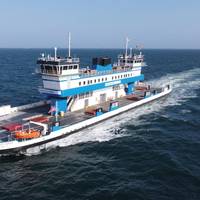
The ocean sector finds itself in a critical moment, especially as the demand to decarbonize grows. Though long-haul is still the biggest emitter in the maritime industry, the need to decarbonize smaller commercial and coastal vessels, including cruise ships, passenger ferries, platform supply vessels (PSVs), offshore service vessels (OSVs), and research ships, is on the rise. Particularly, passenger ferries are pushing into uncharted waters, increasingly being scrutinized by municipal, state, and federal regulators for their environmental impact.
CTVs: Future-proofing Today’s Offshore Wind Solutions
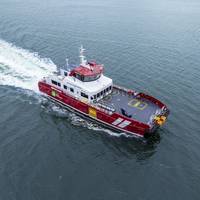
The first commercial application of Volvo Penta’s IPS Professional Platform will power Northern Offshore Services’ next-gen crew transfer vessel. Longtime collaborators Volvo Penta and N-O-S aim to more than satisfy the unique requirements of a possible 25x increase in offshore wind production.Upon arrival in Gothenburg, an observant visitor quickly realizes that Sweden is one of the cleanest places on earth. Epitomizing that lofty standard are two marine industry heavyweights…
US Awards Nearly $300 Million to Support Ferry Upgrades
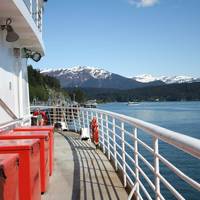
The U.S. Department of Transportation’s Federal Transit Administration (FTA) has unveiled nearly $300 million in grants from President Biden’s Bipartisan Infrastructure Law aimed at transforming and expanding ferry systems across the United States. This substantial investment will support the modernization of ferry services, which are vital for millions of Americans.Each year, ferries facilitate approximately 56 million trips nationwide, playing a crucial role in transporting people and goods…
Freire Shipyards to Build KAUST's New Research Vessel
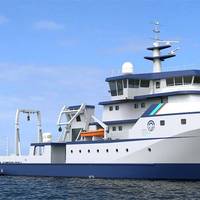
KAUST announced that Freire Shipyards will build its new research vessel at its yard in Vigo, Spain. Upon the expected completion in 2026, RV Thuwal II will be the first regional class research vessel for Saudi Arabia and enable complete access to the Red Sea, including coastal waters and the deep sea. The vessel was designed by Glosten (United States), who will continue to provide off-site engineering support during the construction. Maritime Survey International (Australia) was selected as KAUST’s on-site owners' representative and will oversee the day–to-day construction activities.
Maersk Bets on Bio-LNG with Newbuilding Orders
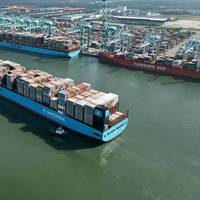
A.P. Moller - Maersk (Maersk) is in the process of signing newbuilding orders and time-charter contracts for LNG dual-fuel container ships.The new orders for 50-60 vessels will match its planned renewal pace of around 160,000 TEU per year.The new orders are a continuation of its fleet renewal program initiated in 2021 which has seen orders placed for 25 methanol dual-fuel vessels, five in service and 20 on order providing around 350,000 TEU of dual-fuel capacity.The exact split…
Hydrogen-powered Ferry Sea Change Set to Enter Service
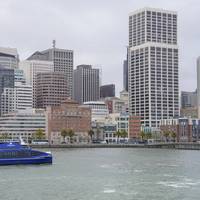
The first-of-its-kind hydrogen-fueled ferry Sea Change will soon begin public service, providing zero-emissions transport for passengers in San Francisco Bay.The groundbreaking commercial passenger vessel is the world’s first powered 100% by zero-emission hydrogen fuel cells. It was developed by owner SWITCH Maritime with grant support from the California Air Resources Board (CARB) as a solution to reduce emissions from the marine transportation system.A group of private and public sector partners came together to officially launch the Sea Change on July 12…
HD HHI’s Ammonia-fueled Car Carrier Earns KR Approval
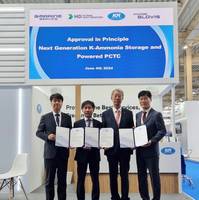
KR has awarded an approval in principle (AIP) for the next-generation K-Ammonia storage and powered pure car and truck carrier (PCTC), developed by HD Hyundai Heavy Industries (HD HHI) with the participation of Hyundai Glovis and G-Marine Service, at Posidonia 2024.Currently, to address the increasingly stringent global greenhouse gas regulations, the development of alternative fuel technologies is actively underway, and ammonia fuel technology is one of the most highly regarded in the market.
US' First Hydrogen-powered Ferry Sea Change Cleared to Enter Service
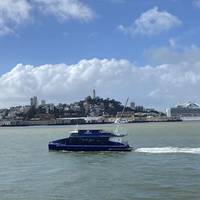
The United States' first hydrogen-powered ferry, Sea Change, has cleared a key regulatory hurdle, marking a major step on the groundbreaking vessel's long and winding journey toward commercial operations in the San Francisco Bay Area.SWITCH Maritime, the company behind the zero-emissions ferry project, announced it received a Certificate of Inspection (COI) from the U.S. Coast Guard on Friday, clearing way for the first-of-its-kind vessel to officially enter service.“This COI represents the culmination of years of close collaboration with the U.S.
ABS Head Wiernicki Sees Global Carbon Tax on Shipping on the Horizon
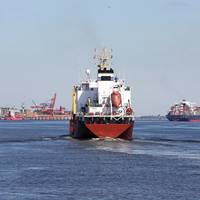
ABS chairman and CEO, Christopher J. Wiernicki, said he sees a universal, global carbon tax on shipping on the horizon, as alternative blue fuels made with carbon capture emerge as a growing part of the maritime industry's ongoing energy transition.“We need to recognize that there is an intermediate step in the energy transition,” Wiernicki said during an appearance at the CERAWeek energy conference. “Last year the conversations were focused on going from oil to a green fuel economy.
Jozwiak Joins GLO Marine as Green Transition Lead
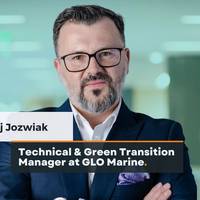
Maciej Jozwiak joined the GLO Marine team, with his experience expected to enhance the company's technical capacity to deliver high-end services to the retrofit and vessel upgrade market, with a focus on green technologies and decarbonization measures.Jozwiak brings more than six years of engineering project management at DAMEN and more than nine years as senior approval engineer at DNV’s Oslo Headquarters. His knowledge in structural engineering, adept project management, and…
Blue Wasp Marine Awarded AiP for Wind Performance Prediction Software
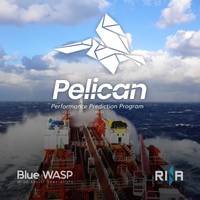
RINA has awarded an Approval in Principle (AiP) for Blue Wasp Marine’s Pelican performance prediction software for wind-assisted ships.With this, Pelican has become the first software of its kind to have received class recognition.Pelican, the product of over 10 years of PhD research, is able to simulate the performance of a ship equipped with wind propulsion technologies using specific wind conditions and sea states. Pelican features a built-in force module for both aero- and hydrodynamics.
Marine Insurance Market is “Strength and Stability in Turbulent Seas”
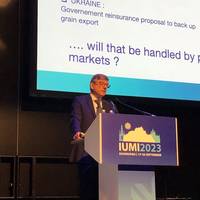
Opening this week’s International Union of Marine Insurance (IUMI) annual conference in Edinburgh, Scotland, President Frédéric Denèfle explained the conference theme of “strength and stability in turbulent seas” saying it is essentially “business as usual” for marine underwriters.“As marine underwriters, we are used to managing an array of casualties and losses onboard a variety of vessels and in ports and other shoreside facilities. Dealing with the fall-out from natural catastrophes such as earthquakes and weather events are also workaday issues.
Interview: Mike Complita, Elliott Bay Design Group
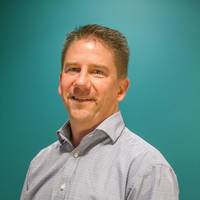
Mike Complita is going on 30 years in the maritime industry. Complita started work at Elliott Bay Design Group (EBDG) as an intern while attending the University of Washington in his hometown, Seattle. “And since that time, I've served in pretty much every role, from a technical and project management standpoint, all the way up to principal of our organization,” he said. Today, as Principal in Charge and VP of Strategic Expansion, Complita works alongside EBDG’s other principals to help guide the firm’s project managers…
Rapid Charging Systems: Current Technology for the Future of Ferries
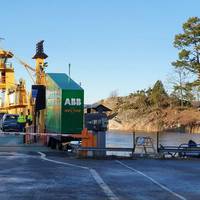
As the devotion to more sustainable shipping expands and regulations become more stringent, the demand for lower emissions operations continues to increase. As a result, the marine industry is confronted with the challenge of large-scale electrification as an alternative energy solution.For electric ferries, one developing technology is Rapid Charging Systems (RCS), which transfer electrical power from the shore to a vessel at a high rate. These charging systems establish a ship-to-shore connection quickly…
WETA's Bay Ferry 2050: Water Transit Reimagined
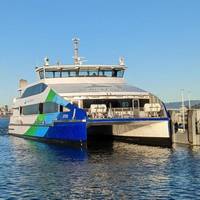
Spearheaded by the Water Emergency Transportation Authority (WETA), Bay Ferry 2050 is a visionary initiative aimed at transforming the San Francisco Bay Ferry service into an eco-friendly and forward-thinking transportation system. With a focus on fleet electrification, community engagement and the exploration of alternative propulsion technologies, the project sets the stage for a more community-minded, sustainable, operationally strong, fiscally sound and environmentally conscious…
Anemoi Scales Up Rotor Sail Technology
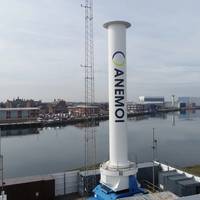
Anemoi Marine Technologies, a UK-based developer of rotor sails for the shipping industry, said it is enhancing its efforts to provide its technology for ship owners, managers and charterers to install onboard vessels as they look to decarbonize their operations.Anemoi offers a range of rotor sails, varying in height from 24 to 35m, suitable for installation and retrofitting on deep-sea vessels including bulk carriers, tankers, ferries, ro-ros, and multipurpose vessels. These…
Coastal Shipping Can Help Cut NZ’s Freight Transport Emissions
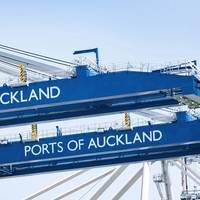
A shift to coastal shipping and rail could cut NZ’s freight transport emissions – why aren’t we doing it?According to a recent study, coastal shipping produces a fifth of the carbon emissions (well-to-wheel) of road freight. Rail also performed well, with about a quarter of trucking emissions.Despite this, trucking accounts for nearly 80% of New Zealand’s heavy goods transport, and a 94.5% share of the total emissions from heavy freight transport.The dominance of trucking follows the expansion of the road network…
Partners Developing Methanol-fueled High-speed Marine Engine
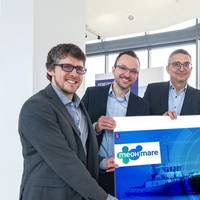
Three marine industry partners are working to develop a concept for a high-speed internal combustion engine for ships that can run on green methanol in a CO2-neutral manner.Rolls-Royce, Woodward L’Orange and WTZ Roßlau have been working since the beginning of 2023 on the new joint project “MeOHmare”, which is receiving eight million euros in funding from the German Federal Ministry of Economics and Climate Protection.Dr. Daniel Chatterjee, responsible for technology strategy and sustainability at alliance coordinator Rolls-Royce Power Systems…
Weather Routing: Sofar Ocean Plots the Course
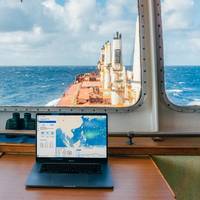
Sofar Ocean is on a quest to extract and put to use data from the world’s waterways. Co-Founder and CEO Tim Janssen discusses how his team’s hyper-focus on data is helping to improve weather routing via Wayfinder.Tim Janssen and his Sofar Ocean team continue their ‘Epic Ocean Data Quest,’ remaining laser focused on doing its part to help extract and put to use increasing quantities of information from the world’s oceans. For its part, Sofar continues to build scalable networks to gather information premised on its Sofar Spotter buoy.
Austal to Develop Hydrogen-fueled High-speed Ferry
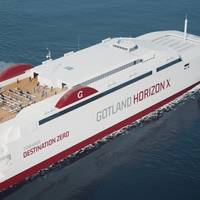
Australian shipbuilding group Austal will develop a high-speed that runs on hydrogen fuel under a recently signed memorandum of understanding (MOU) with Sweden's Gotlandsbolaget (Gotland Company).A 130-meter-long high-speed catamaran able to operate on hydrogen and other fossil-free fuels, the new vessel Horizon X will be able to run at 35 knots, while transporting 1,650 passengers and up to 450 vehicles.Håkan Johansson, CEO of Gotland, said, ”This is an important step in our climate journey.
Cargill Testing New Sail Technology for Cargo Ships to Cut Emissions
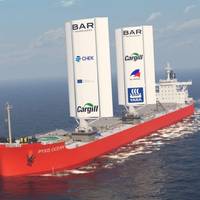
Cargill, one of the world's biggest ship charterers, is stepping up a push to resurrect wind power for cargo ships as the agricultural commodities group moves to cut emissions from its chartered fleet, a top executive said.With about 90% of world trade transported by sea, shipping accounts for nearly 3% of the world's CO2 emissions, yet environmental campaigners say regulatory efforts by the sector to cut emissions are still slow.Cargill will test a dry bulk vessel with two wind sails carrying cargo onboard later this year…



